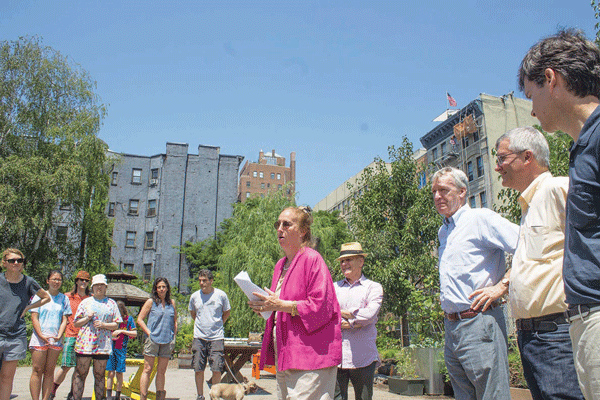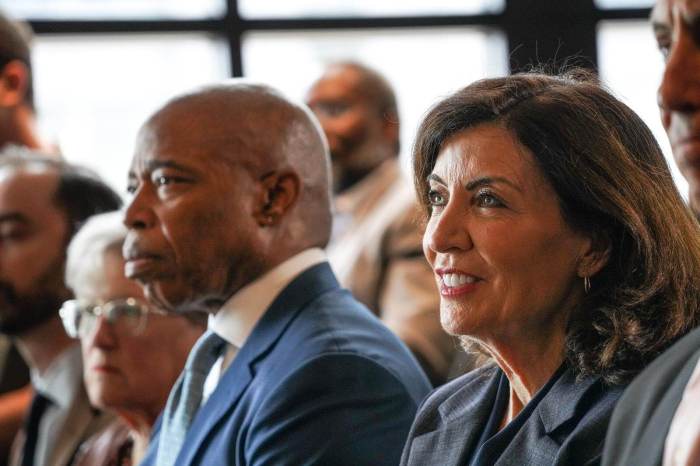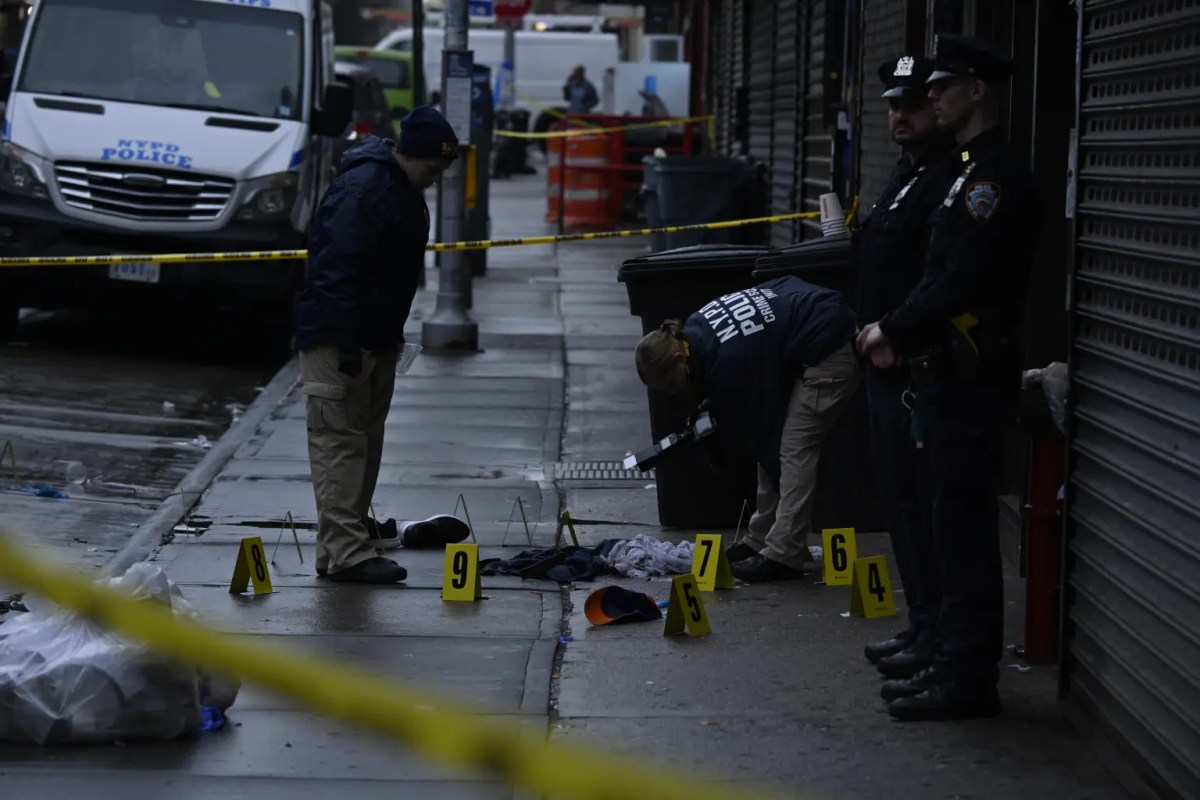
BY ZACH WILLIAMS | Four grants to community gardens will expand public composting stations available to East Village residents.
Hopes are high among gardeners, activists and local elected officials that the $2,900 in funding — specifically earmarked for composting — will promote environmental sustainability and education.
The Citizens Committee For New York City awarded the grants in partnership with the borough president’s Solid Waste Advisory Board.
La Plaza Cultural de Armando Perez, at E. Ninth St. and Avenue C, received $650. The funds will be used to rat-proof the garden’s recycling bins, as well as replace worn equipment.
Borough President Gale Brewer said it’s important to note how cutting waste has ancillary benefits.
“My feeling with composting — to get the general public — is you explain that these recycling bins are rat-proof, and that really makes a difference,” she said on Sat., July 12, at an event at La Plaza announcing the grants.
Three other sites receiving grant money are East Side Community High School, at 420 E. 12th St.; Green Oasis Community Garden, at 374-388 E. Eighth St.; and Peach Tree Garden, at 236 E. Second St. The first two will use the funding to expand current composting efforts. Peach Tree will rebuild a three-bin composting system damaged by Hurricane Sandy, as well as do outreach to the surrounding community.
Eight additional composting projects received Citizen Committee grants this year in other areas of Manhattan. In total, 50 groups citywide received about $32,000 in composting grants.
La Plaza and Peach Tree were also recipients this year of Citizens Committee neighborhood grants. La Plaza will use these funds to host an educational nature walk for local students. Peach Tree Garden will use this grant to increase neighbors’ access to fresh produce and nutritional information.
State Senator Brad Hoylman, Assemblymember Brian Kavanagh and Brendan Sexton, chairperson of the Solid Waste Advisory Board, also spoke at the event. Sexton was also the commissioner of the city’s Department of Sanitation from 1985 to 1990.
Increasing local residents’ proximity to composting sites is critical in getting them to see a greater cause at work, said Sexton.
“Trash doesn’t immediately call up fun and games to people,” Sexton said. “It’s not what they want to do on the weekend. But there are things about recycling and energy management and trash management and the rest of it that can actually be fun. It’s good to focus on that and remember that we’re here to have a good time in this life and this is part of it.”
Organic waste currently makes up 31 percent of New York City’s garbage, according to the Department of Sanitation Bureau of Waste Prevention, Reuse and Recycling Web site. Meanwhile, only about 20 percent of city gardens currently have composting programs, according to Peter Kostmayer, C.E.O. of Citizens Committee.
A city composting program now being tested in the outer boroughs aims eventually to cut food waste by 75 percent, Kostmayer noted. But community gardens provide both a forum and a convenient location for a bottom-up approach, inviting personal investment, he said.
“You need a willingness on the part of the people to do the work that needs to be done,” Kostmayer explained.
Lenore Odbor noted that, not only adults, but some children, too, approach gardening with apprehension, which disappears soon after they get their hands dirty. She brings East Village Community School students from 3 to 10 years old there to tend kale and other crops.
The children love to do the planting, but quickly must learn that a successful crop involves much more effort, Odbor said.
Community gardens and composting are also an important element in outreach to the East Village’s Latino and African-American communities, said Rivera Santos. A local resident of nearly 60 years, Santos has been involved with several other community gardens.
As he explained it, in a previous era, community gardens helped people regain control of their neighborhoods when arson and crime were everyday dangers; similarly, composting can now empower people, on a personal level, to confront the scourge of pollution.
“You have to reach into the communities and bring everybody onto the same page,” he said.

















